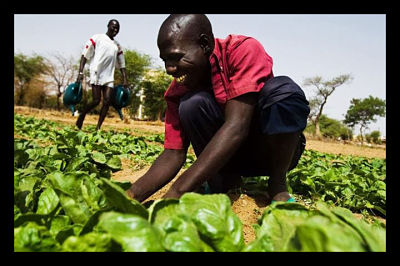Importance of Small-Scale Farmers

With a rising population and a high demand on food production, our world is looking for solutions to increase food production. Small-scale farmers play an important role in the dilemma of feeding our world. Currently small-scale farmers produce the majority of food for the developing world.
There are millions of success stories about these farmers reaching out and sustaining whole communities. For example, in Brazil there is a food security policy known as Zero Hunger. In this program the government buys products directly from small-scale farmers and distributes the products to day-care centers, hospitals and community associations.
However, the UN and FAO in a report, Smallholder Integration in Changing Food Markets, highlight the challenges still ahead for small-scale farmers. The report calls attention to the importance of policymakers in the growth of small-scale farmers. The report focuses on the fact that most of these farmers are removed from the market. It calls for policymakers to create greater market integration and more inclusive value chains. The report concludes that by doing these things, these farmers will be more inclined to adopt new technologies to grow productivity.
The report stresses the two main ways to link small-scale farmers to the market are to provide better access to credit and insurance, and to strengthen the links between farmers and buyers. The report discusses the fact that, in many countries, transportation is too costly, infrastructure is inadequate, and the cost of storage is too high. These farmers are unlikely to risk producing a surplus of products if they think that their products would go to waste.
“High levels of price, production risks and uncertainty, and limited access to tools to manage them deter investment in more productive new technologies that would enable smallholders to produce surpluses for sale in markets,” according to the report.
Policymakers must focus on the inclusion of small-scale farmers into the market. They are important to the future of our world and must be supported.
– Catherine Ulrich
Sources: FAO, International Institute for Environment and Development, UN News
